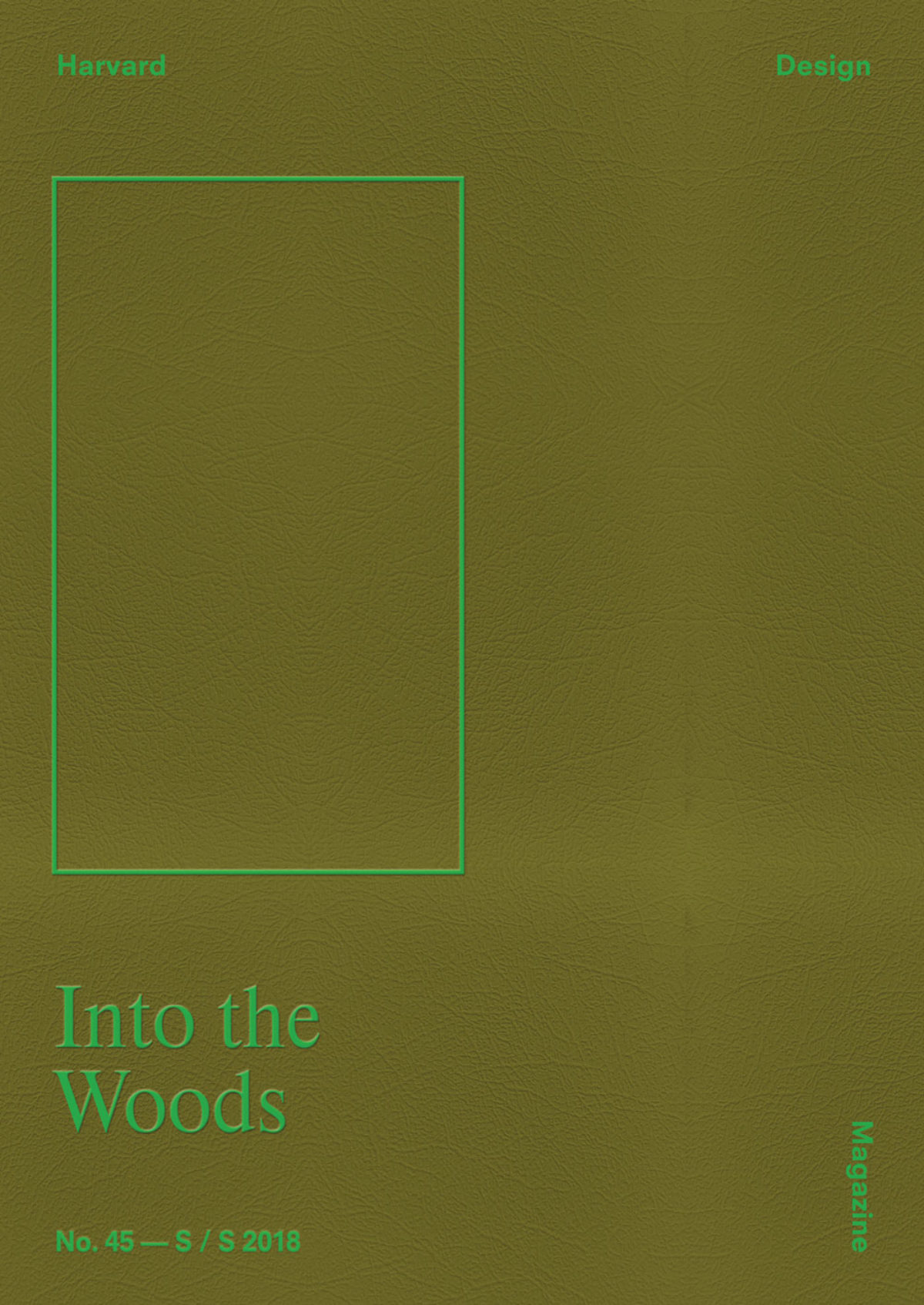Into the Woods

To go “into the woods” is to enter both nightmare and wonderment, chaos and serenity. The woods are the threatening realm of wolves and witches, yet also a space of peace and introspection. They confound and illuminate, disorient and clarify, endanger and protect. The woods are where we “come to our senses,” and where we embrace our wilder selves. They are a space of complex life forms and ecological destruction; of growth and decay; of fantasy and ritual; of secrets and control; of hiding and the hidden.
The woods are often framed as a nonurban place; an entity separate from, and opposed to, the city—even the world; an eternal refuge that can smoothly be entered and exited, gone into and back out of. But how much of our woods still remains to go into—and on what terms?
As designers, we encounter the woods as building site, as obstacle, and as resource—territory to be cleared, but also to be preserved, cultivated, tamed, or simulated. Wood itself—along with its products like lumber, wood pulp, silvichemicals, and charcoal—fuel the building industry and feed architecture. In a period of accelerated climate change, the planet’s woods are disappearing, burning up, threatening and threatened by human existence. How can we holistically address the woods and its ecosystems, and the life and life-giving power they contain?
This issue of Harvard Design Magazine treks into the woods to come to terms with its precarious status as habitat and resource, and to challenge assumptions about wood as material. We won’t be “out of the woods”—this looping conundrum—any time soon, even if the woods as we once knew it, and might still imagine it, has ceased to exist. At the intersection of wilderness, urbanization, and myth, “Into the Woods” embraces contradiction, challenges destruction, and revisits our roots, biological and architectural alike.
“Into the Woods” combines contributions by noted critics and theorists including Milica Topalovic, Lawrence Buell, T. J. Demos, Rosetta Elkin, Jack Halberstam, and Maria Tatar; practitioners Dogma, Alexander Brodsky, Dilip Da Cunha, Eelco Hooftman, and Paulo Tavares; as well as artists Tang Chang, Maria Thereza Alves, Janet Cardiff, and Bas Princen; anthropologists Anna Tsing and Eduardo Kohn; and philosopher Giorgio Agamben.
Edited by Jennifer Sigler and Leah Whitman-Salkin.
Designed by With Projects, Inc.
248 pages, softcover, $16.00
ISSN 1093-4421
Published by the Harvard University Graduate School of Design, Spring/Summer 2018.